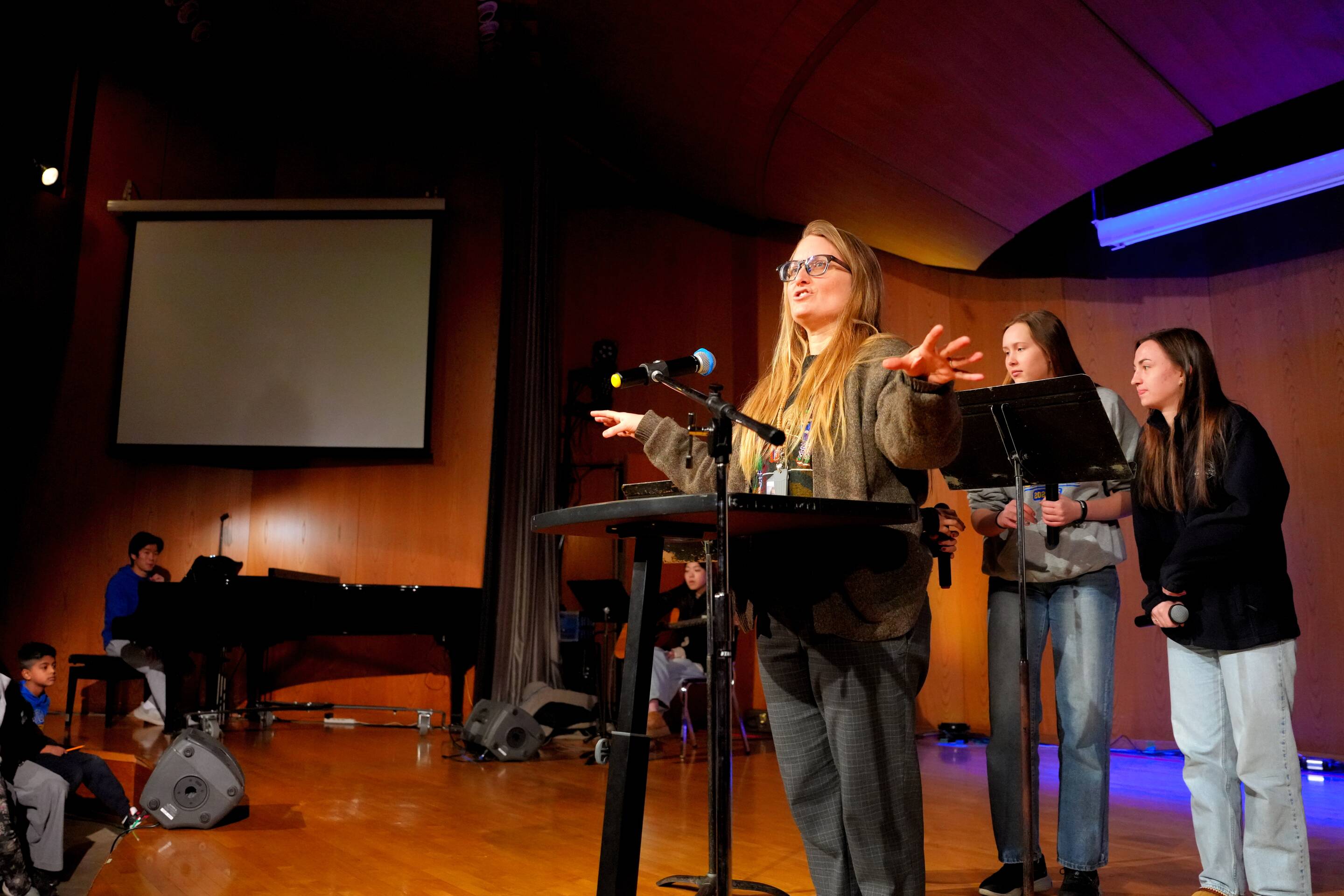December 2020
回復力を高めるには
12/04/2020 09:14

私たち多くの者にとって2020年はとても厳しい年です。新型コロナウィルスにより私たちの毎日の生活は影響を受け続けていますが、常に変化する状況に順応していかなければいけません。また、私たちが直面しているのはパンデミックだけではありません。世界的規模の人種差別、不安定な社会、自然災害など、私たちが取り組まなければいけない課題 があります。それぞれの課題がもたらす苦痛や悲しみを認識すると同時にどのようにすればそれを乗り越えていくことができるでしょうか?2020年、そしてこの先も起こり得る困難を耐える希望と回復力を自分たちの内にどのように見出していけば良いのでしょうか?
CAJでは今学年度、社会性と情動の学習(SEL)を率先して行っています。SELとは子どもたち一人ひとりの全人格形成に必要な学習で、特に今年はストレスに対処するためのもとても重要な役を担っています。この新しいカリキュラムは児童生徒の人間関係と精神面での成長をはぐくみ、回復力を養うだけではなく、多様性、他人との共感、ストレス管理などもターゲットとしています。ここでは回復力に注目し、回復力に役立つ簡単な方法をお教えします。心理学者のマーティン・セリグマン博士は、三つのP、Personal, Pervasive, Permanent (以下に説明します)を避けるように促しています。
Personal: これは、起こったことに対して、自分に責任があると感じることです。例えば、あるプロジェクトが大変すぎるのは、自分に適切な能力がないからである、と感じること。これにより、私たちは自分自身に、曖昧でまちがったレッテルを貼ってしまいます。しかし、現実を検証すれば、このプロジェクトは誰がやっても大変なものだとわかります。新しいことを学ぶには努力と時間が必要であり、障害を取り除くためにはスキルを身につけなければいけないことがわかるのです。建設的な思考により、不必要な自己非難をやめて、根本の問題を解決するための具体的な行動を取ることができるようになります。
Pervasive (広汎性): これは人生の一つの分野での悪い状況が他の全ての分野に影響を及ぼすという考えです。行事や、パーティー、旅行などが次々にキャンセルになり、私たちの多くが「すべてがキャンセルだ!」と考えます。人生で失われたものを認識し、悲しむことは大切なことですが、同時に、私たちの人生を支配される恵み深い神様に希望を見出すことを覚えることも大切です。そうすれば、人生の困難のほとんどは広範囲に染み出していくことでないことがわかってきます。他の人との会話、人間関係、そして楽しむことはキャンセルされません。全て思い通りにいかなければゼロになってしまう、という考えに、人生の喜びを奪われないようにしましょう。
Permanent: 人生の困難は一時的なものだと理解する人は、起こった出来事を受け入れ、将来に適合できる人です。「これもまた過ぎ去るものだ」という言葉は聖書のみ言葉ではありませんが、パウロが コリント人への手紙第2、4章17節で言っている「一時の軽い苦難」に共鳴するものがあると思います。「自分の苦しみを、一時の軽い苦難と言うなんてひどい!」と思いますが、でも、監獄に入れられ、暴力を振るわれ、殉死したパウロが記した言葉だと思う時、彼が伝えたいことは、苦難が軽く一時的に感じられる、ということではなくて、わたしたちが、永遠のいのち、という比べようもない栄光と、目には見えない永遠の価値に心をむけるように、ということなのです。
お分かりのように、回復力を高めるというのは、痛みを無視したり、大丈夫なふりをすることではありません。回復力を高めるための他の習慣、たとえば、心身の健康を守り、他の人々とのつながりを持ち、必要な時は助けを求めることなどを、3つのPと共に行うことにより、私たちは神様の御心を日々行うことができます。それは、心の一新によって自分を変え(ローマ人への手紙12:2)、人生が投げかけてくる困難の中でも足に地のついた、回復力のある人生を送ることができる、ということです。
Building Resilience
12/04/2020 09:09

2020 has been a grueling year for many of us. Covid-19 continues to impact us daily, and we must learn to adapt as the situation continues to change. It’s not just the pandemic: global issues like systemic racism, civil unrest, and natural disasters also demand our attention and response. How do we acknowledge and overcome the real challenges of our day without dismissing the hardships? How do we find hope and build the resilience in us that will withstand the trials of 2020 and beyond?
At CAJ, we have strengthened our Social Emotional Learning (SEL) initiatives this year. SEL is an integral part of the holistic development of each child, and it is becoming even more important with the stresses of this year. The new curriculum we have put in place aims to nurture students’ relational and emotional development, and it features not only resilience but other key topics such as diversity, empathy, and stress management. Here, we will focus on resilience and look at one simple tip for more resilient thinking. Psychologist Dr. Martin Seligman encourages us to avoid three P’s - personal, pervasive, and permanent - for a healthier thought life.
Personal - This is the belief that we are personally at fault for something that has occurred. For example, if we believe that a particular project is tough because we are “inadequate,” we have placed a personal and yet vague and inaccurate label on ourselves. But when we examine the reality of the situation, we discover that it’s a challenging project for anyone; it takes time and effort to learn new things, and we can work on specific skills to remove many of the obstacles. Constructive thinking reduces unnecessary self-blame and often helps us take responsibility for more specific solutions to resolve the real issues at hand.
Pervasive thinking assumes that a bad situation in one area of life will impact all areas of life. Many of us thought, "Everything is cancelled!" when events, parties, and trips seemed to be cancelled one after another. It is healthy to acknowledge and grieve losses in our lives, but, as we do, we can find hope in God who is still good and sovereign over our lives. We begin to find encouragement in the non-pervasive nature of most of our challenges in life. Conversations are not cancelled, relationships are not cancelled, and fun is certainly not cancelled. Don’t let all-or-nothing thinking rob you of the good that is still there to enjoy.
Permanent - People who understand life’s setbacks to be temporary are better able to accept what has happened and adapt for the future. The saying “this too shall pass” is not from the Bible, but it does resonate with what Paul wrote in 2 Corinthians 4: 17 about his “light and momentary afflictions.” I think, “How dare anyone call my suffering light and momentary!” But then I remember that Paul experienced prison, violence, and death as a martyr. He wrote these words, not because suffering feels light and momentary by any means, but to remind us of the truly incomparable glory we will experience in eternal life and to exhort us to focus on unseen things of eternal value.
As you can see, building resilience isn’t about ignoring our pain or faking positivity. Combined with other resilience-building habits like staying healthy, staying connected with others, and seeking help when needed, steering away from these three P’s helps us do what God calls us to do each day - be transformed by the renewing of our minds (Romans 12:2) and live a grounded, resilient life in the midst of all that life throws at us.




